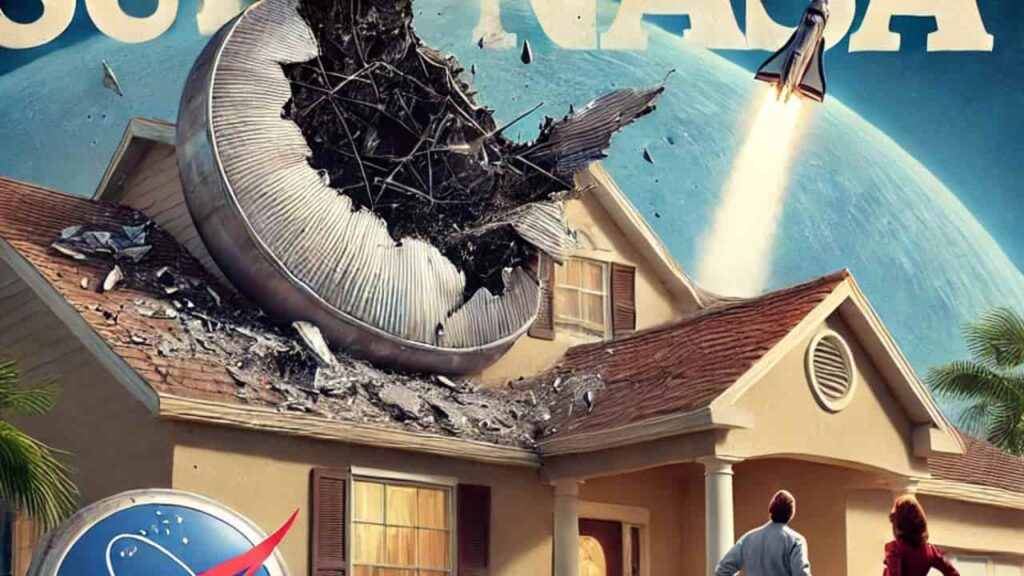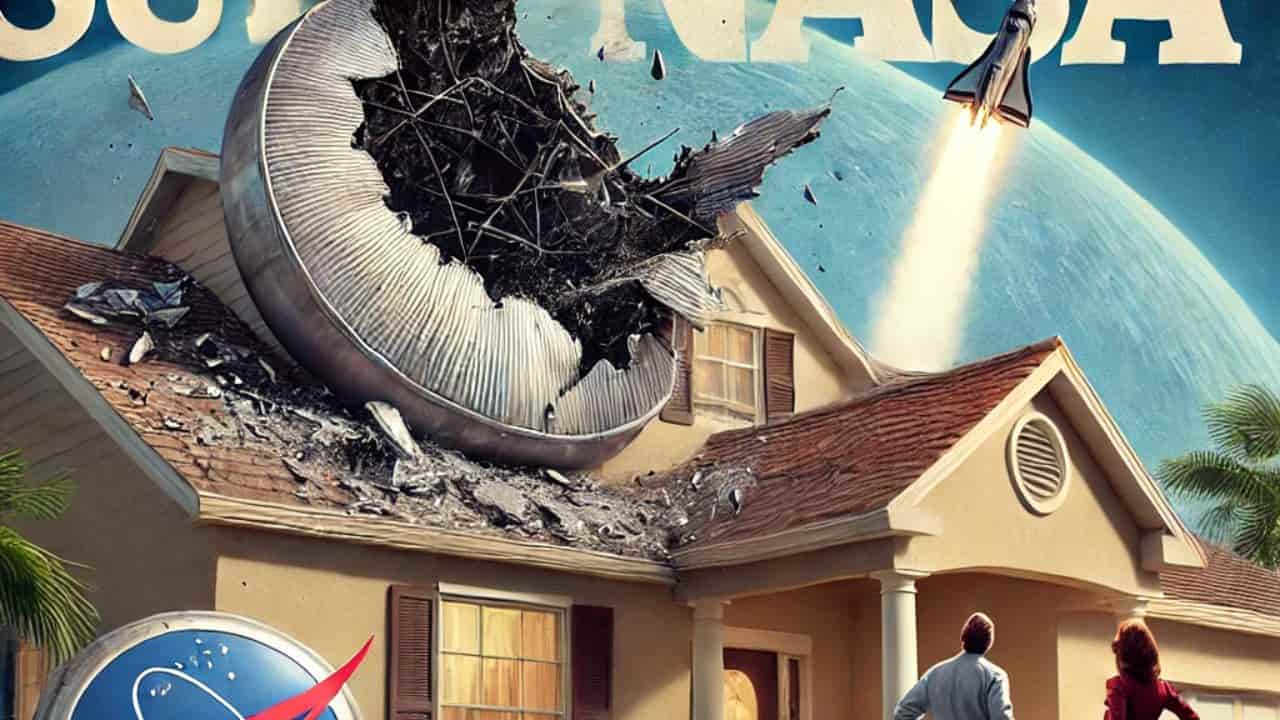Florida family sues NASA, NASA space debris, space debris lawsuit, Naples Florida space debris, space debris damage, NASA liability, space debris legal issues, space debris crash, space law, Otero family NASA lawsuit
A Florida family is suing NASA after a piece of space debris crashed through their Naples home. The incident highlights the growing issue of space debris and raises questions about liability and legal frameworks for damages caused by space materials. Learn more about the family’s lawsuit and the implications for space safety.

A Florida Family Sues NASA Over Space Debris Incident
In an unprecedented and alarming incident earlier this year, a Florida family found themselves victims of an unexpected encounter with space debris. The Otero family from Naples, Florida, is suing NASA after a piece of metallic space debris, identified as belonging to the agency, crashed through their home. This rare occurrence not only left a significant hole in their roof but also brought to light serious questions about liability and responsibility when man-made materials from space cause damage on Earth.
The Incident: A Rare and Startling Event
The incident took place in March when a piece of space debris re-entered Earth’s atmosphere and plummeted onto the Otero family’s residence. The family’s attorney, Mica Nguyen Worthy, stated that the 19-year-old son of homeowner Alejandro Otero was inside the house at the time. Fortunately, he was in a different part of the house and escaped unharmed. The occurrence, described by Worthy as a “near miss,” could have had catastrophic consequences if it had impacted a few rooms away.
The Lawsuit: Seeking Compensation and Accountability
The family’s lawsuit against NASA, filed last month, seeks compensation for various damages including non-insured property damage, emotional and mental distress, and other related damages. Worthy emphasized the profound impact of the incident on the family, noting the stress and anxiety it caused. The claim underscores the necessity for accountability and compensation for the disruptions and potential dangers posed by such incidents.
NASA’s Response and Responsibility
In April, NASA acknowledged the incident in a blog post, confirming that the debris was a metal alloy stanchion from NASA flight support equipment. The debris originated from a March 2021 operation aboard the International Space Station, where NASA released a 5,800-pound cargo pallet of old nickel hydride batteries into orbit. These batteries were expected to burn up in the atmosphere within two to four years. However, the material that landed in Florida was a 1.6-pound piece, which surprisingly survived the re-entry and caused the damage.
NASA reiterated its commitment to operating responsibly in low Earth orbit and mitigating risks associated with space debris. Despite these assurances, incidents like this highlight the unpredictable nature of space operations and the potential hazards they pose to people on Earth.
Legal Complexities: The Space Liability Convention and Domestic Laws
The legal landscape surrounding space debris incidents is complex. Under the international Space Liability Convention, NASA would be held responsible for any damage caused by its space debris in other countries. However, the application of these international agreements becomes murkier when the debris lands within the United States, as noted by space law expert Mark Sundahl. This creates a unique legal challenge in determining liability and the appropriate legal framework for such domestic incidents.
The Growing Issue of Space Debris
This incident is a stark reminder of the increasing issue of space debris. As space traffic continues to grow, the risks associated with falling debris also rise. The Otero family’s experience underscores the urgent need for more robust measures to manage and mitigate the risks posed by space debris.
Conclusion: A Call for Enhanced Safety Measures and Clear Legal Frameworks
The lawsuit filed by the Otero family against NASA brings to light significant concerns about the safety and management of space debris. It emphasizes the need for NASA and other space-faring entities to enhance their safety measures and protocols to prevent similar incidents in the future. Additionally, it highlights the necessity for clear legal frameworks to address liability and compensation for damages caused by space debris, both internationally and domestically.
As the exploration and utilization of space continue to expand, ensuring the safety of people on Earth must remain a top priority. This incident serves as a wake-up call for the space community to take more proactive steps in mitigating the risks associated with space debris and to establish comprehensive legal mechanisms to handle such occurrences effectively.
Read More
